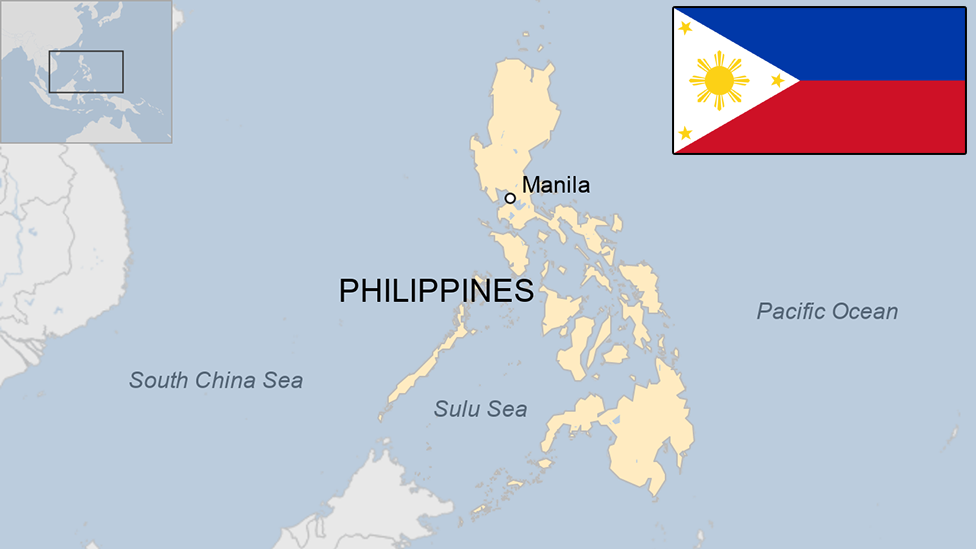Philippines holds autonomy referendum in restive Mindanao
- Published
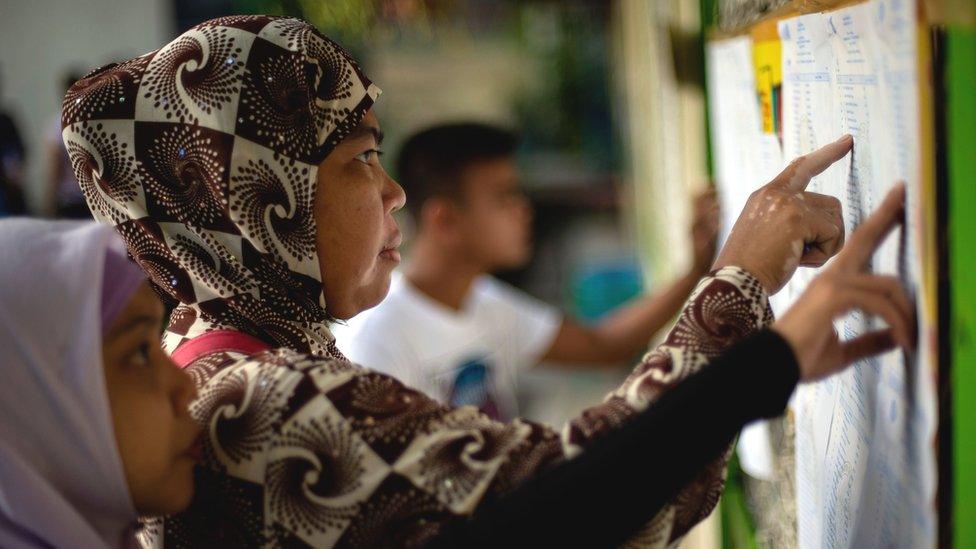
The vote could end decades of violence
Nearly three million people in the volatile Mindanao region of the Philippines have voted in a referendum which could see some areas given greater autonomy.
They have been asked whether they back a plan by separatists to create a self-administered area known as Bangsamoro.
The vote is a political solution to decades of fighting between Islamist separatists and the Philippine army.
More than 120,000 people have died in the years of violence.
Final results are expected by Friday, and a "yes" vote is widely expected. Election officials say there was a high turnout.
Why is this significant?
The vote is the result of a peace deal between the government and the Moro Islamic Liberation Front (MILF) - which has been fighting for independence for decades.
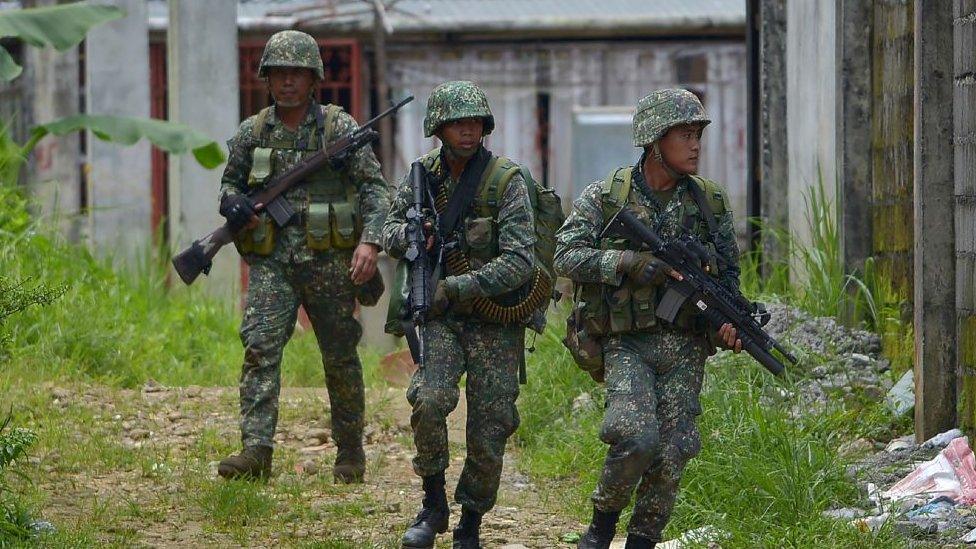
Mindanao has been racked by violence over the years
The Philippine government has so far failed to bring about peace in the region.
But the MILF rebels have said they will give up their push for an independent region in return for greater rule over the new region.
They say this is the best way to help them rein in the smaller, more radical groups - some with links to the so-called Islamic State (IS) group - which have emerged in recent years.
What exactly were people voting for?
They are being asked whether a region called the Bangsamoro Autonomous Region should be created in majority-Muslim areas of Mindanao.
The move would transfer some powers from the central government, bring in more funding and give the region greater control of its resources.
The new region would have its own elections in 2022, and constituents would be able to vote for its own parliament and a chief ministry.
The government in Manila would still oversee policing and security.
The MILF would be expected to become a significant political force in the new region.
If it proves successful, it could lead to the establishment of a federal political system across the Philippines.
Why is Mindanao so volatile?
The Philippines is a predominantly Catholic country but Mindanao has a significant Muslim population.
Many regard the region as their ancestral homeland, dating back to the 13th Century when Arab traders first arrived, and over the decades various rebel groups sprang up demanding the right to self-rule.
Mindanao has seen a huge amount of violence in recent years - mainly between the army, Muslim separatists and other rebels.
The violence has left Mindanao one of the poorest regions in the Philippines.
The entire region of Mindanao is still under martial law, which was implemented in 2017 after clashes between the army and militants linked to IS.
Martial law allows the use of the military to enforce law and the detention of people without charge for long periods.
It is expected to be in place until the end of 2019.
- Published23 May 2017
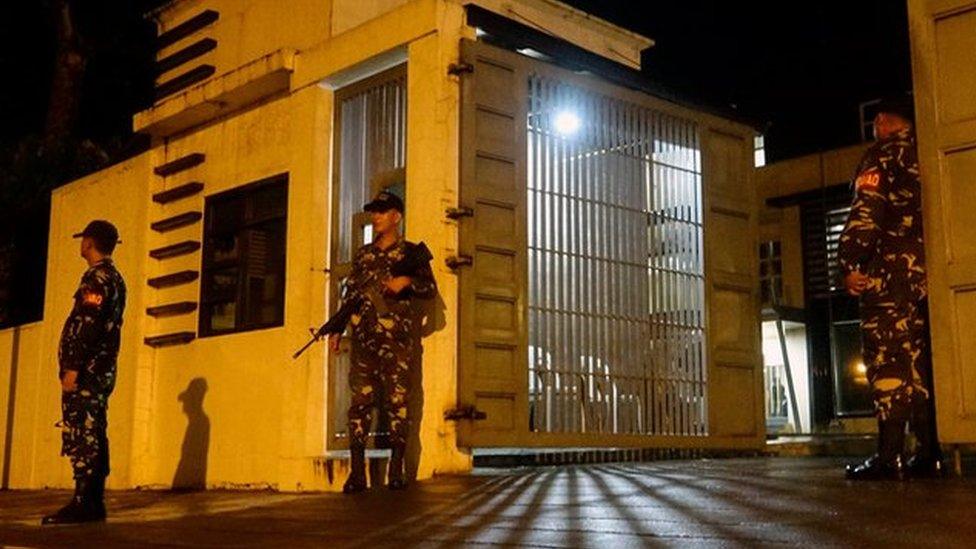
- Published26 January 2015
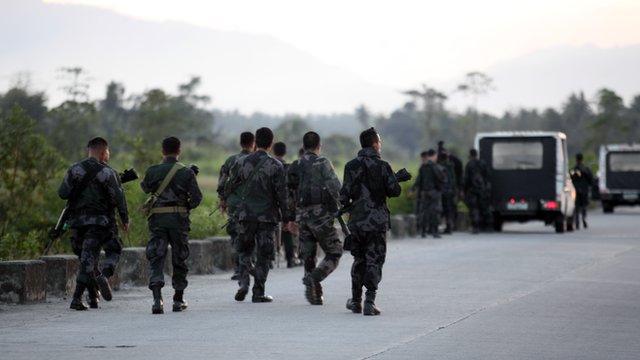
- Published16 June 2015
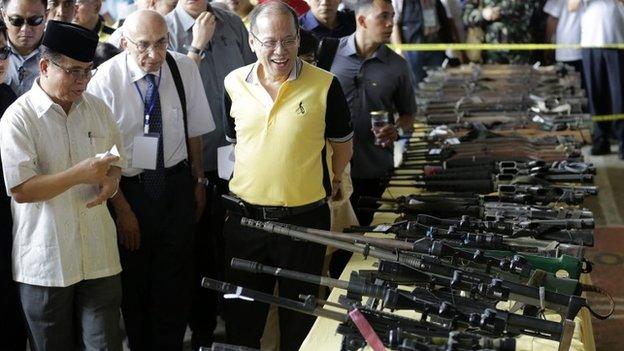
- Published5 July 2023
